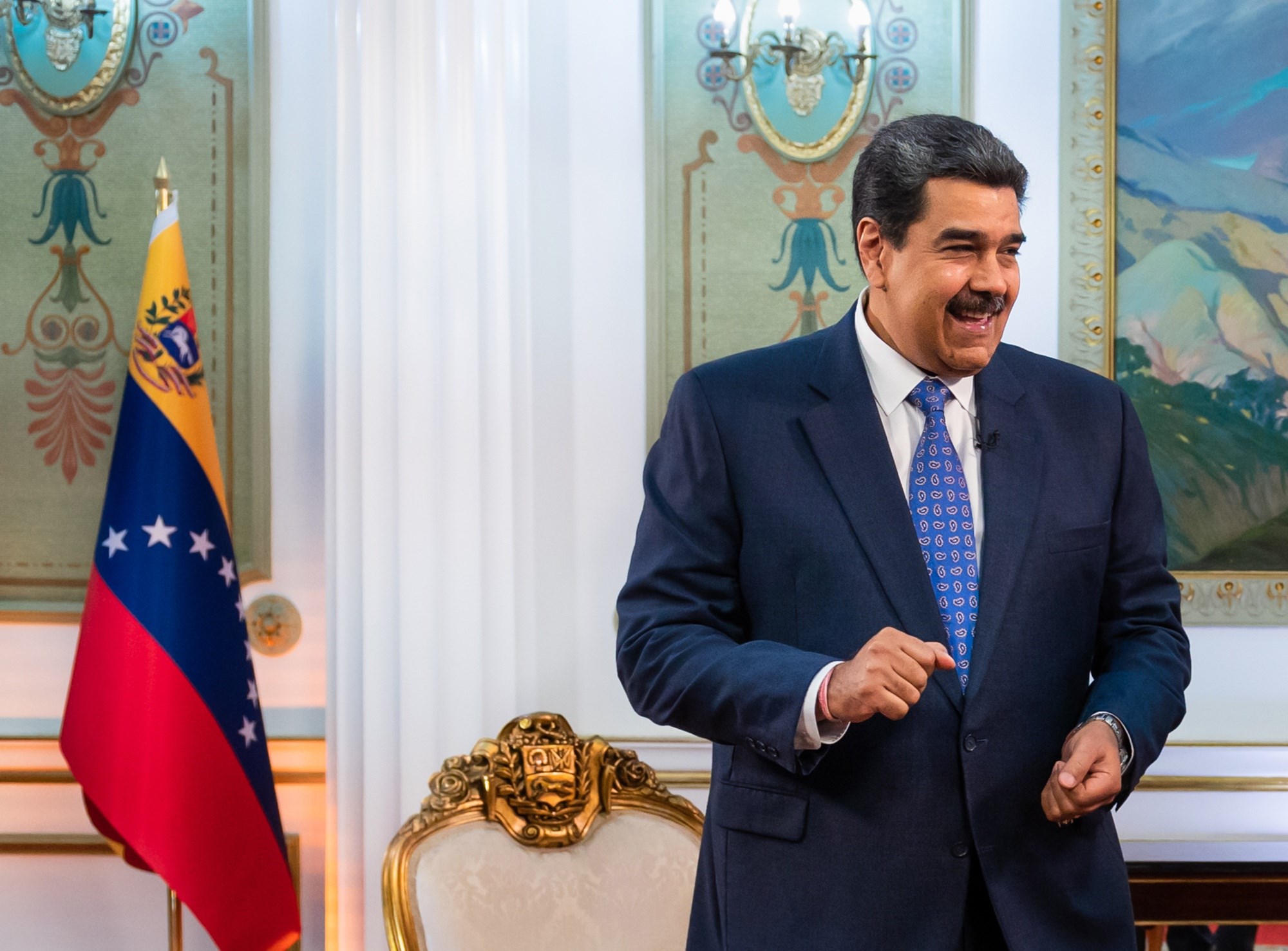Maduro's government, opposition to meet in Mexico for negotiations
The last time formal negotiations took place between the two was in October last year.
-

Venezuelan President Nicolas Maduro (Bloomberg)
The government of Venezuelan President Nicolas Maduro is expected to resume talks with the opposition on Friday after more than a year in an attempt to resolve a political crisis that all went downhill after the contested 2018 elections, whereby Maduro was democratically elected but internationally boycotted, touting US-backed opposition leader Juan Guaido in his stead.
The last time formal negotiations took place between the two was in October last year, and recent updates leading up to the last few months, after two failed negotiations, show the opposition's desire to run in the presidential elections due in 2024.
Maduro suspended the negotiations two months after August 2021 in retaliation for the extradition to the United States by Cape Verde of Colombian national Alex Saab accused of representing a money launderer for Maduro, which Venezuela categorically denied.
Saab was apprehended on June 12, 2020, in Cape Verde and extradited to the US in October 2021, following massive US pressure, despite Venezuela demonstrating on multiple occasions and on the basis of countless documents that Alex Saab is a diplomatic official who was fulfilling a specific function at the time of his arrest.
It is worth noting that the Venezuelan government included Saab on its negotiation team in September when the two parties met in Mexico to try to resolve the political situation.
Colombia's President Gustavo Petro took the matter to Twitter, saying: "Dialogue between Maduro's government and the Venezuelan opposition will resume on the 25th and 26th of November,", but Venezuelan opposition leader Juan Guaido's office, tweeted that "information about a possible agreement and restart of the negotiations will be announced by official sources," or through "the facilitating country, Norway."
Este 25 y 26 de Noviembre se reinician los dialogos entre el gobierno de Maduro y la oposición venezolana.
— Gustavo Petro (@petrogustavo) November 23, 2022
ATENCIÓN | La información sobre un posible acuerdo y reinicio de la negociación la oficializarán las fuentes oficiales: el país facilitador, Noruega; y por la alternativa democrática, la Plataforma Unitaria.
— Centro de Comunicación Nacional (@Presidencia_VE) November 24, 2022
"Speculation hinders the possibility of a deal," the office said, as it is anticipated that talks will possibly occur in Mexico City on Friday, per a Venezuelan opposition source to AFP.
Although Maduro won the polls, more than 60 countries, spearheaded by the US, recognized Guaido as Venezuela's Acting President, in complete defiance of democracy and the Venezuelan people's choice. Not only that, but they also continued to impose draconian sanctions on the country alongside the EU.
Harm was their only intention, as one sanction hit Venezuela's economic safety belt hard; its crude oil which accounted for 96% of the country's revenues.
Petro to the rescue
As delegations for both sides met in Paris earlier this month through the mediation of French President Emmanuel Macron, efforts by the international community to resolve the crisis have increased as a result of inflation and the illegal sanctions by the US that President Joe Biden announced in May he would ease.
Simultaneously, Guaido's US-installed strength has diminished since losing allies both at home and in the Latin American region, as leftist presidents assume power, one of which is President Petro who is now a new actor in the talks being Colombia's first leftist President in August.
One of Petro's successes includes resuming diplomatic ties with Venezuela for the first time since 2019 after former right-wing President Ivan Duque rejected Maduro as President.
Venezuela, on its part and in turn, is hosting peace talks between Petro's government and the last official rebel group in Colombia, the National Liberation Army.
The ruling party won control of the National Assembly in last year's elections, but Guaido and an opposition commission drawn from those elected to parliament in 2015, who enacted reforms to extend their own mandate, continue to control Venezuela's assets abroad, including US oil refiner Citgo and Colombian fertilizer manufacturer Monomeros.
Maduro directed the National Assembly in January to investigate the opposition politicians who expanded the commission's mandate.

 4 Min Read
4 Min Read








